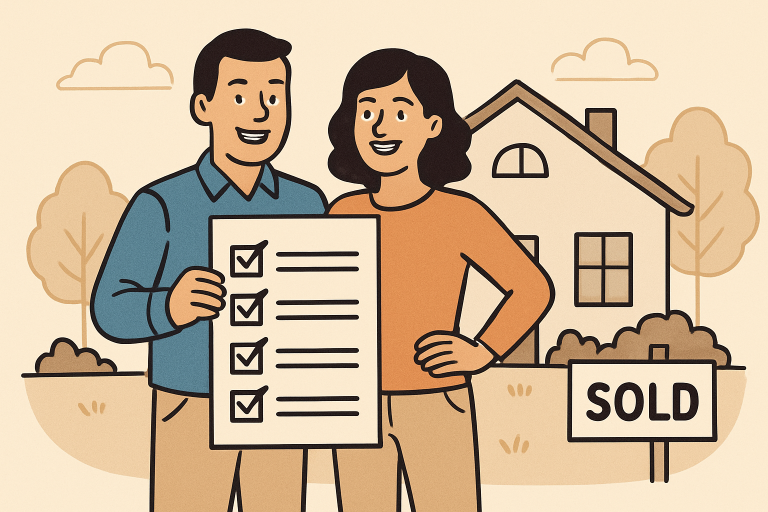Table of Contents
- 1 The Emotional and Financial Aspects of Home Buying
- 2 Establishing a Realistic Home Buying Budget
- 3 Researching Neighborhoods That Fit Your Lifestyle
- 4 Understanding Mortgage Options and Pre-Approval
- 5 The Value of Working With Real Estate Professionals
- 6 Making and Negotiating an Offer
- 7 Staying Organized and Avoiding Common Pitfalls
- 8 Preparing for Closing Day and the Move Ahead
- 9 Final Thoughts
The Emotional and Financial Aspects of Home Buying
The journey to homeownership begins with honest self-reflection. Assessing your financial health goes beyond looking at your bank statements—evaluate your debt-to-income ratio, credit score, and savings habits. This foundational step can help you avoid surprises down the road and is especially key in competitive markets. Equally important is emotional readiness. Home buying often marks the start of a new chapter, so align your purchase with long-term life goals and personal values.
Whether purchasing your first property or upgrading your living situation, working with a knowledgeable partner can make all the difference. For those seeking expert guidance, a trusted Vero Beach FL real estate agent Kristin Dobson brings local expertise and strategic insight to simplify your search and decision-making process, ensuring you start your journey with confidence.

Establishing a Realistic Home Buying Budget
Setting a budget involves more than the listing price. Use online calculators or consult a financial expert to determine true affordability, considering down payments, insurance, taxes, and closing costs. Include ongoing expenses like maintenance, utilities, and repairs to house hunt confidently within your means.
Researching Neighborhoods That Fit Your Lifestyle
Finding the right home depends on the neighborhood as much as the property. Key factors include school ratings, local amenities, workplace proximity, and walkability. Use recent market data for trends and pricing insights. Maps, virtual tours, and forums help narrow options. Compare crime stats, evaluate commutes, and visit at different times to ensure the home fits your needs.
Understanding Mortgage Options and Pre-Approval
When buying a home, exploring mortgage options like conventional, FHA, VA, and USDA loans is crucial. Each has unique requirements and benefits. Research or consult a lender to find the best fit. Securing a pre-approval shows sellers you’re serious and financially ready, strengthening your position in competitive markets and facilitating a quicker, smoother closing.
The Value of Working With Real Estate Professionals
An experienced real estate agent advocates for your interests, accesses new listings, manages negotiations, interprets contracts, and connects you with inspectors and lenders. When choosing one, ask about their local experience, communication approach, and strategies for finding suitable homes. A knowledgeable agent saves time, reduces stress, and helps you find options you might miss.
Making and Negotiating an Offer
Once you find a potential home, move quickly but carefully. Your agent can help you determine a fair offer using comparable sales data and contingencies. After submitting, be ready to negotiate price, closing dates, appliances, and repairs. Strong negotiation skills—based on research and expert support—help secure the best deal and safeguard your interests. Approach negotiations flexibly with clear must-haves and deal-breakers.
Staying Organized and Avoiding Common Pitfalls
Organization is your best ally in the home buying process. Maintain a checklist of tasks, gather all necessary paperwork ahead of time, and store digital copies in a secure location. Even small organizational habits can prevent missed deadlines or overlooked documents at critical moments.
Learn from others’ mistakes. Common pitfalls include skipping the home inspection, overextending financially, or failing to read the fine print. By staying organized and being proactive, you can avoid these headaches and move toward closing with peace of mind.
Preparing for Closing Day and the Move Ahead
As closing day nears, do a final walk-through to verify repairs and condition. Review all documents carefully, asking questions if needed. After closing, celebrate and prepare for move-in by transferring utilities, updating your address, and handling immediate needs. Moving into your new home begins your next adventure.
Final Thoughts
Buying a home is more than a financial investment—it’s an emotional milestone that shapes your lifestyle and future. By preparing your budget, researching neighborhoods, exploring mortgage options, and staying organized, you can move through the process with greater clarity and confidence. The guidance of a skilled real estate professional adds another layer of support, helping you avoid pitfalls and secure the best outcome. Ultimately, successful homeownership comes from blending careful planning with personal vision. When you align your financial readiness with your long-term goals, you set the stage for a home that not only meets your needs today but also grows with you in the years ahead.
